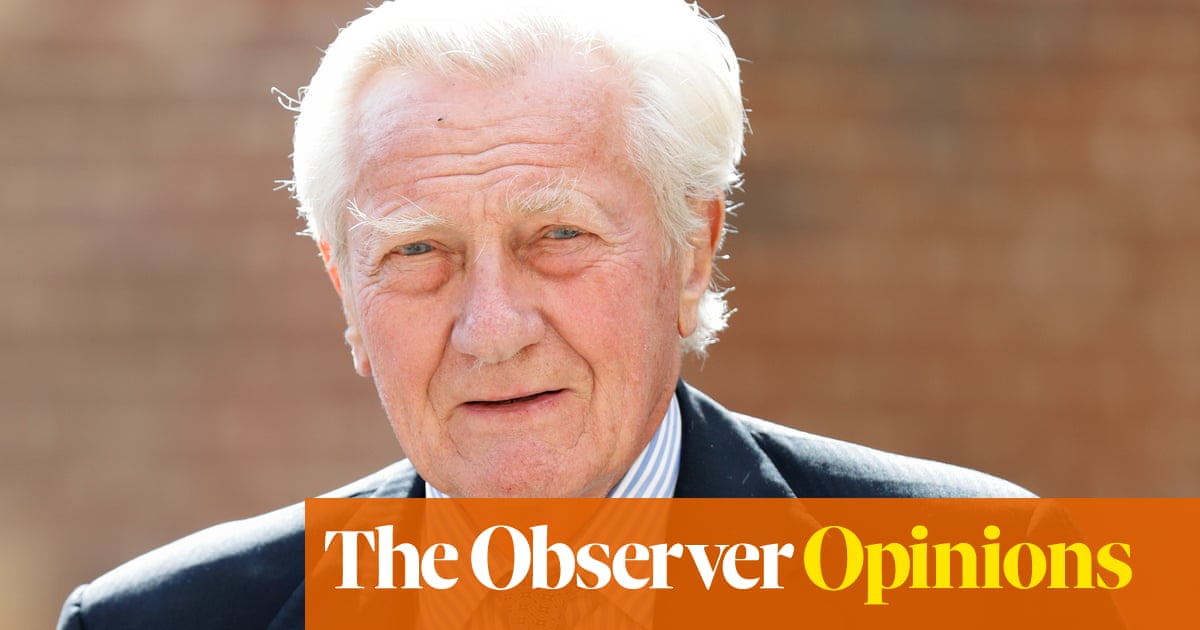
t’s fashionable to demonise London as everything from pampered and out of touch to an anti-British “enemy within” that actively keeps the rest of the country down. In this narrative, Labour has been pushed back to the supposedly privileged “metro-liberal” cities – with none more privileged, metropolitan or liberal than the UK capital.
But the notion of London as a city bathing in its own privilege is a ridiculous oversimplification. Tell it, for instance, to the six households from Grenfell Tower who are still stuck in temporary accommodation, four years on from the catastrophic fire, a lethal product of administrative corruption, ignorance and incompetence.
Even so, such narratives are likely to intensify in the wake of this month’s local elections, with the political right glorying in its claimed role as the new tribune of “left behind” areas, and the government pushing ahead with its vaguely defined “levelling up” agenda.
Since the end of the second world war, government attitudes to regional inequality have tended to mirror their approach to inequality more broadly – be it postwar Labour’s top-down redistribution, Thatcher’s inegalitarian neoliberalism, or Blairite redistribution by skimming the proceeds of growth.
Boris Johnson and members of his government seem likely to depart from that. Their attitudes to regional inequality sit uncomfortably with some of their other values.
Across large areas of policy, the old Tory instincts prevail. Ministers recently insisted, for instance, that the £20 uplift to universal credit must be withdrawn because “we need to try to get people into work” – implying that without the whip of financial hardship, the unemployed will just sit around on their backsides.
Similarly, the government seems more interested in downplaying or even redefining racial inequality than actually tackling it, as evidenced by the botched Sewell report. Even with socioeconomic inequality, which the government is very keen to contrast with racial inequality as being an Actual Problem, its focus is on the schooling of white working-class boys. Why? Because it sees the government’s role as limited to creating equality of opportunity through the education system. Once those white working-class boys are white working-class men, it’s time to cut their entitlement to benefits.
But with regional inequality it’s different. The government acknowledges it rather than denies it, highlights it rather than downplays it, and promises to shower economically “left behind” areas with taxpayer largesse – especially if those areas vote Tory. Ministers would not now dream of telling the people of Darlington to get on their bikes and look for work; instead the Treasury is getting on its bike and looking for Darlington. Levelling up implies not equality of opportunity but equality of outcome, a historically leftwing approach to inequality that the Tories continue to eschew elsewhere.
Much of this is electoral expediency – ministers follow the marginals, much as they did when the key marginals were in the home counties. But there is also a legitimacy the Tories are willing to grant to regional grievances that they won’t to others. Brexit, after all, descended into a battle of legitimacy based on supposed authenticity – the “industrial” north is considered authentically British, its concerns legitimate; London is deemed inauthentic, and its migrant communities foreign.
Inequality is a power relationship, and in this regional inequality frame London is cast as having the power. Whether or not this is true, there is a difference between a centre of power and the people who live there. The official measure of geographical deprivation – the Indices of Multiple Deprivation – underplays poverty in London by using a formula that attaches far more weight to unemployment measures, where London has scored well in recent years, than to housing poverty, where London is a disaster zone.
But even with unemployment, London is now struggling. The city’s boroughs, hit by the shift to working from home and the enforced closure of the culture and hospitality sectors, have seen some of the biggest rises in unemployment, with universal credit claims from unemployed people trebling in Brent and Newham between February 2020 and March 2021.
In fact, of the 20 British local authorities with the highest proportion of working-age people claiming universal credit while out of work, six are now in London – before the pandemic, none were. More than half the boroughs in London are above Darlington in the table. Islington is worse hit than Coventry, Boston and Bridgend. Meanwhile, job creation in the capital appears to be lower relative to pre-Covid times than any other region or country of the UK.
London’s unemployment will undoubtedly end up concentrated among young black people. Figures published this month show unemployment rising fastest among ethnic minorities, with one in 10 black, Asian and minority ethnic women unemployed in the first quarter of this year. Before the pandemic, unemployment was higher among black people than other ethnic groups.
This leaves London at the confluence of a number of pernicious political trends. First, it is an easy target for the Tories, the capital caricatured as elite and out of touch, and resented as a beacon of privilege in other parts of the country. Deborah Mattinson’s depressing book, Beyond the Red Wall, showed that for many of the “red wall” voters in her focus groups, levelling up is a zero-sum game – London must suffer for other regions to prosper.
Second, the Covid-era increase in public empathy for benefit claimants may not last – particularly regarding those who are out of work. The context matters – in this case being the widely accepted difficulty of finding work during the pandemic and the public health imperative to stay home. As Britain unlocks and the economy recovers, that context will change rapidly.
Finally, there is the racial element. When they’re not portraying it as the home of a gilded, woke elite, London’s rightwing detractors cast it as full of violent black criminals or swarming with Muslim radicals. In a country whose government is trying to downplay the prevalence of racism and undermine the concepts of institutional and structural racism, unemployment among young black Londoners may provoke limited empathy among the public at large.
The fact that Shaun Bailey, the Conservative candidate for London mayor, was not totally humiliated in the election may at least convince Tory HQ that the capital is not a city lost to it in the long term. But even that could play out a number of ways. Yes, the Conservatives could ditch the metro-liberal bashing and try to actually win those voters over – but equally they could double down, ramping up the culture wars to whip up the white, more Brexity suburbs.
The Tories routinely seek scapegoats for their own failings – recently they have used vaccine refusal to shift blame for the spread of Covid variants. If London is hit by long-term unemployment as a kind of economic long Covid, it can expect little sympathy from the media or the wider public. A government with a genuine interest in tackling inequality would provide the necessary support regardless. That is not this government.
Chaminda Jayanetti is a journalist who covers politics and public services












